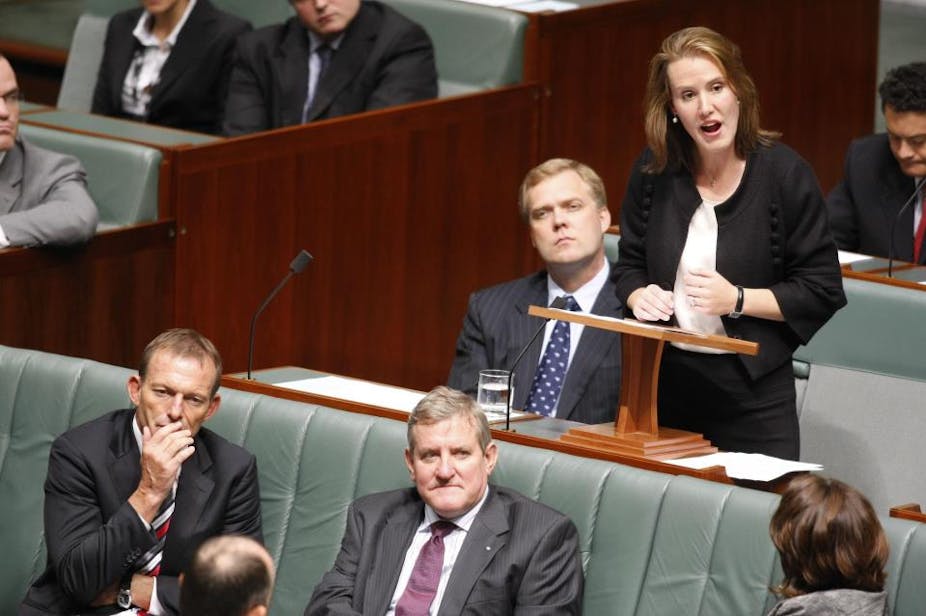“Fairness” is being hijacked by Labor and Greens as a one-word slogan to cover a very narrow concept, according to Kelly O'Dwyer, parliamentary secretary to the treasurer.
With the government still on the ropes over a 2014 budget widely condemned as “unfair”, O'Dwyer sought to cast “fairness” more broadly, describing it as “multi-dimensional and complex in practice”.
“All of us who are interested in good public policy need to reclaim the fairness agenda and highlight fairness’ many dimensions.
"We will only achieve reform if we convince the Australian population that the reform is fair,” O'Dwyer said.
“Not fair in a simple redistributive sense, but fair having regard to principles like intergenerational equity, reward for effort, personal responsibility and policy certainty, as well as a moral responsibility to have a social safety net for those who are truly vulnerable in our society.”
Labor and Greens aimed to set a “Boolean test” – whether a budget measure took more from those with higher incomes than they previously enjoyed and/or gave more to those on lower incomes than they had before.
But “we need to engage the Australian public in a conversation about the many other dimensions to fairness than the redistributive dimension”, O'Dwyer told a Centre for Independent Studies function.
“This will be crucial to prosecuting economic and social policy reform successfully.”
There was no question that fairness involved “assisting the truly disadvantaged and marginalised”. But it went as well to intergenerational fairness.
“Among other things, it also involves looking at the hidden winners and losers, questions of personal responsibility and reward for effort, and complex transitional questions.”
A great challenge to good policymaking was that fairness was too often judged in terms of visible winners rather than hidden losers – for example, seeing today’s Australians and forgetting about those of tomorrow.
Similarly, the higher education debate had focused on those fortunate enough to go to university who were asked to pay a little more, neglecting the non-attenders who would earn on average less and would be asked to pay a little less under the changes. “They are the hidden losers under the status quo, and the hidden winners of changing the contribution mix.”
In welfare debates, the focus was on the visible winner who received the welfare, rather than on the hidden loser – “the ordinary taxpayer whose income is appropriated by the state to fund it”.
On industrial relations, “the focus is all too often on the visible workers in employment without sufficient consideration of whether the policy is fair to the small-business owner or the unemployed, or indeed the consumer”.
One fundamental aspect of fairness took into account an element of personal responsibility.
“Hence there is limited community angst about individuals with debilitating injuries who have made every effort to find meaningful employment receiving income assistance, yet far more concern about people in areas of high unemployment refusing to move or take on jobs which are ‘beneath them’.”
The flipside of this was recognition of reward for effort. “Ensuring government policy rewards effort and risk-taking is a basic matter of fairness.”
O'Dwyer foreshadowed that the imminent Intergenerational Report to be released by Treasurer Joe Hockey would highlight the need to look at spending and tax-expenditure growth areas such as pensions and superannuation. One of the most important areas for participants in the debate to address would be managing transition arrangements.
“For instance, there has already been some public discussion about the assets test for the pension and specifically whether the family home should be included. Leaving aside … whether it’s the right thing to change that assets test, one of the key questions that advocates of change will need to address is how to be fair to those who decided to overcapitalise in their house over a number of years, possibly decades, precisely because of that exemption for the family home.
"Herein lies one of the central challenges in the fairness debate. The millennial generation might consider it fair to remove this exemption immediately rather than over time. From their perspective, that would minimise the intergenerational wealth transfer, so why delay?
"But a middle-aged family or pensioner might consider that completely unfair because they made a range of choices based on that exemption continuing. At the end of the day, perhaps, beauty is in the eye of the beholder, but fairness is a matter of perspective.”

